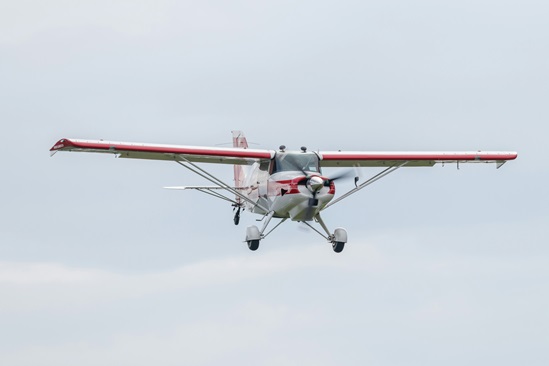

Warren Silberman
- Former Manager, FAA Aerospace Medical Certification
- Doctor of Osteopathic Medicine
- Expert in Aerospace/Preventive Medicine
- Pilot since 1986
Airmen who have percutaneous transluminal coronary angioplasty (PTCA) and/or “stenting” of the blocked heart artery also have been required to have the “grounding period” of six months. PTCA is when the cardiologist places a catheter that has a balloon on the tip through the heart artery that is narrowed and inflates a balloon. The pressure of the opening balloon “squashes” out the plaque in the vessel and opens up the artery. Placing a wire “stent” over this squashed plaque has shown to reduce the likelihood that the plaque will subsequently close off the vessel again. The new change is that airmen for all classes can now apply after three months, rather than waiting for six months.
The FAA cardiology consultants who review the cardiac cases of airmen applying for first and unlimited second class certificates are going to be much stricter in requiring those airmen to adhere to the risk factor reduction policies as set forth by the American College of Cardiology and American Heart Association. This will affect the allowable cholesterol levels and smoking habits of the pilots who present their cases to the panel.
The requirements for presenting one's case to the FAA if an airman has had treated coronary heart disease will not change.
First and second class medical applications
- Provide hospital admission and discharge summaries
- Initial cardiac catheterization report and copies of films
- Operative report from bypass or PTCA/stent procedure
- Current cardiovascular evaluation
- Current fasting blood sugar and lipid panel
- Current repeat cardiac catheterization (now performed at the six-month time for bypass and three-month for PTCA and/or stent)
- Maximal nuclear stress testing
Requirements for third class medical applications are the same as above minus the requirement for the post cardiac catheterization. The applicant will need a maximal plain Bruce Protocol stress test, but a nuclear stress test will need to be performed if that test is positive for “ischemia.”
The follow-up testing to maintain the special issuance will also change.
In the past, applicants for all first and second class medicals were required to provide a maximal nuclear stress test every other year with a plain one on the alternate years. The third class medicals required the airman to have a plain stress test every year.
Now all classes will be allowed to provide a plain stress test each year, unless the FAA physician determines a nuclear one may be required. Note: The FAA physicians have always had the option of changing one's follow-up requirements if they feel the medical necessity.
Check with the medical certification staff at AOPA Pilot Protection Services if you have any questions about your case. They are aware of all of the new changes.
To continue reading, please log in or join AOPA now to have access to these exclusive expert resources.
EDITOR'S NOTE: We were just notified 3/20/13 that the FAA is still working through the final cardiac policy changes. When the formal policy is announced we will notify our members at that time and highlight any changes to this article.
In mid-January 2013 some of the federal air surgeon's cardiology consultants met in Oklahoma City to discuss some of the policies that the FAA requires of airmen who have certain cardiac conditions. As a result of that meeting some favorable changes have been instituted.
Currently an airman who has coronary artery bypass grafting, which is a surgical procedure that “bypasses” obstructed heart arteries with veins taken from one's legs, requires a six-month “disqualification” period prior to the airman requesting a special issuance (waiver). The purpose of the down time is for healing and observation in case of complications or further obstruction of the bypassed arteries. This policy will continue.


